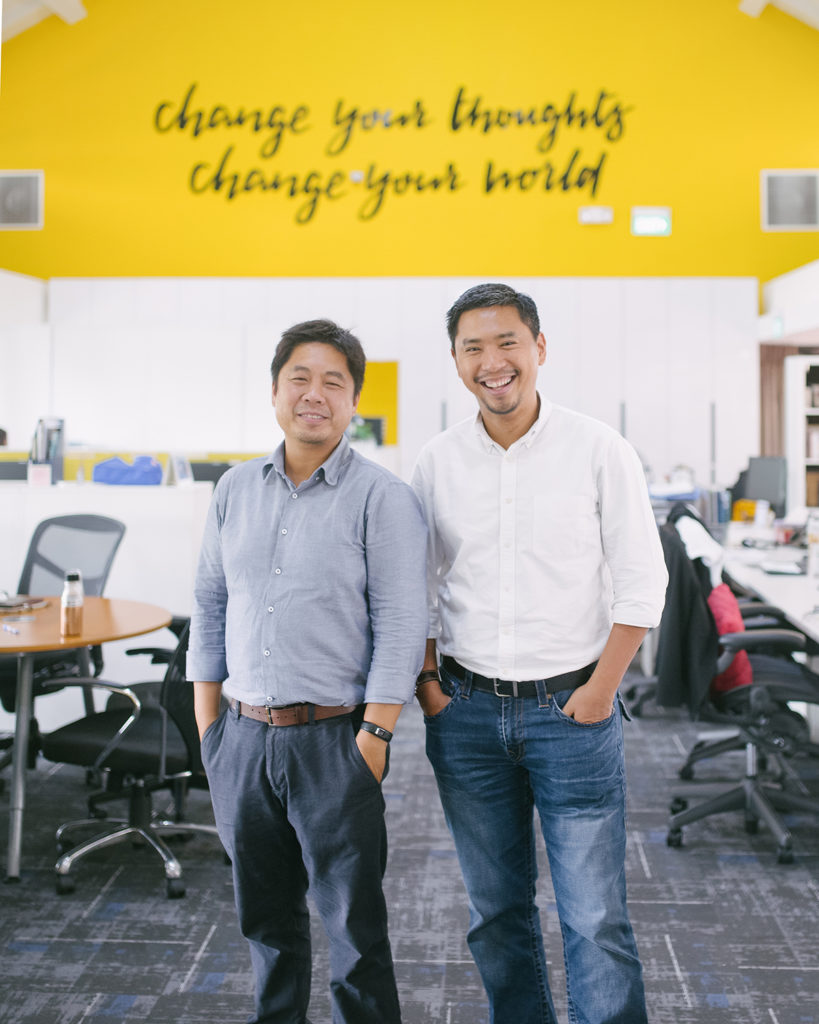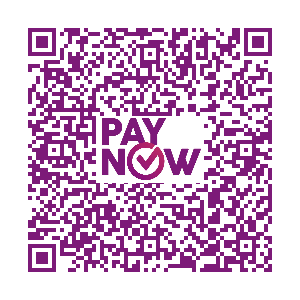
Co-Founders of Halogen Foundation Singapore
What does influence mean to you?
Martin Tan (MT): To me, influence is the ability to shape one person’s thoughts, actions and value system. It is what propels them into doing things a certain way and think a certain way. For us at Halogen, we have always defined leadership as influence. The ability to have young people shape other young people’s way of seeing themselves and to positively impact the world.
Jeffrey Yip (JY): I share Martin’s thoughts, however I do feel that we have to be wary as influence can be used for both good and bad. The power of leadership development is really helping people understand how to influence in a way that is mutually beneficial for all parties. When one-side, influence can be very dangerous.
What are some experiences or memories that shaped the way you exercise influence?
MT: I had the privilege of seating on many boards at a young age. It’s through these experiences that I learnt that chairman of the board may not necessarily be the most influential person in the room. I have come across individuals who by virtue of their stature, intellect or experience, have the ability to sway a conversation and influence the outcome of the decision. I was young then and I’ve always seen leadership in a traditional way where the chairman of the board tends to be the most powerful person so to speak. In my formative years, I have decided that I rather be a person of influence than a person of position. I am interested in the outcome that is created as opposed to how much positional sway I have on a particular topic. That makes a big difference on how I see leadership and influence. It is not positional, we have the ability to influence an outcome whether we are in a position of power or not.
JY: Influence to me is more relational so my grandfather was a big influence on me. Growing up, I noticed that a book was never too far from my grandfather. Over the years, I feel like it indirectly influenced my habit of reading.
Working with young people also influences me. They have this sense of idealism where anything is possible, this sense of wanting to dream big. I have always been attracted to that. Growing older, I have developed more cynicism, and working with young people revives that sense of idealism and ability to dream.
How do you exercise influence in your everyday life?
JY: Maybe by not thinking about it as influence. When we are very conscious about it, it becomes a question of “how do I convince this person to a certain way of doing things?” That may alter the motives behind why we want to convince said person. However, if we were to reframe influence as a way to help others, this minimizes the possibility of us influencing others solely for our own benefit.
As I’ve mentioned before, I am more worried about the dangers of influence. I think that the reasons behind influence or how one thinks about influence is crucial to ensuring the outcome of one’s actions is positive for all parties involved.
MT: Sometimes we overplay a word or a concept so much that it becomes more of a burden than a help. For me, I’ve always lived by a simple guide.
Do I leave a place or person in a better position then when I met them at the first juncture? This translates to every aspect of my life – be it joining an organization, catching up with a friend or spending time with my family. The question I constantly ask is, in that short span of time I am with a person, committee or organization, have I left the place a bit better than before I was there? I think that’s what life is about, making the world we are part of slightly better.
It doesn’t have to be a big thing. This applies even to my social media posts, Am I sharing something that will leave the conversation in a better place or am I adding fire for no reason? If it doesn’t move the conversation along, I don’t see a point in taking part in said conversation. Whether you classify that as influence, its up for grabs. I think that’s what life’s about, making the world we are part of slightly better.
JY: There’s a saying by Meg Whitley, “We can change the world, one conversation at a time”. So I think even if we are not intentional about influence, everything we do has ripples of influence.
What’s the potential of influence?
MT: Influence must have an outcome. The outcome can be a change in perspective, the outcome can be in thoughts, in words or in deeds. If in the course in working with someone, there’s no change in thought, word and deed, you have no influence over that person.
So the ability for young people to exercise that has tremendous possibilities in the circle of people around them and the larger society that they are part of. This ability of theirs to recognise that what they say has a ripple effect on the community around them, and that they should take it seriously because it can potentially do good or bad. That understanding of their influence is going to make or break the world we live in. I look at what’s happening in America today, You cannot say that’s there is no influence exercised there. The influence exercised there has given rise to the most vile behaviour of seemingly normal nice Americans. Largely because they realise they have the permission to be vile against someone who is different from them. That is exercising influence as well, It opens up a door to something we don’t want to see happen. I think if young people are nurtured correctly, inspired rightly, given the opportunity to understand however big or small their influence is, it plays a part in the ripple continuum.
JY: Influence is dangerous when it’s about me wanting to influence. I think influence is beneficial when it’s mutual. Often we hear people say the phrase “I want to change the world”, which is a great attitude to have but I think it is also important to take note of how the world changes me. This outlook makes it more balanced and it’s not just about me acting on the world which can be very one sided and potentially harmful. I think so long as influence is mutual, we’ll be safe. As much as I want to do good in the world, I am also learning while I am doing and I am not fixed in my approach to influence.
What young people possess is a ton of idealism, energy and passion. They are skeptical and that’s a great thing as its how great change and innovation happens. However, it has to be tampered with listening to the other side as well. For example, the older generation have accumulated wisdom and experience. If both parties are able to work together rather than thinking of the other as opposites – like status quo vs change – that’s where constructive change starts to happen.
What challenges young people might face in the near future and how can they navigate this challenge?
JY: I think that we are now in age of choice. During my growing up years, there were choices yes but there’s still a defined path. We used to beat up on that defined path, argue that young people should have more choice and young people should not follow the beaten path and carve their own path. I think right now the world is the people’s oyster, especially with the proliferation of the Internet.
On the flipside, having too many choices can also create anxieties and that’s tough for young people these days. I think the challenge we are facing now is the anxiety of choice.
MT: There’s a talk recently, “ What’s important in life, I learnt from Netflix”, the basic point was that there’s so much choice on Netflix that you will end up jumping from film to film without finishing one. Choices create a parallel universe where unless young people develop a sense of commitment in completing a task, they won’t finish what they started.
They will keep jumping from one thing to another without sinking roots. Sinking roots not just in the heritage sense of the word, sinking roots in terms of completing something. With an abundance of choice, the tenacious ability and resilience needed to complete a given task is not being exercised.
I just had the a similar conversation with my daughter when halfway through a song, she just jumps to the next song. I told her that it’s important to enjoy the finishing of something because the ending is as important as the beginning. I think those nuances, the current generation will have a hard time grappling with. On top of choices, the biggest challenge for young people is the idea of commitment. Commitment will go through a variety of parts of our life. From building organization, starting and finishing programs, impacting the world to relationship, marriages, friendships. If we don’t know how to commit to something, it becomes very hard. So, this is one of the many challenges our children will face. How do we teach them the value of commitment when the world tells them that it’s perfectly fine to continuously try something new.
JY: On top of that, I feel that social media can also be a challenge for our young people. It portrays a perfect world as people tend to only present the good side of things. A skewed interpretation of reality is presented and this raises the bar of expectation as one would be pressured into constantly investing in putting up a facade. The challenge for young people is to find the anchor and confidence to feel good enough amidst a digitalised world that tries to compete them against one another.
